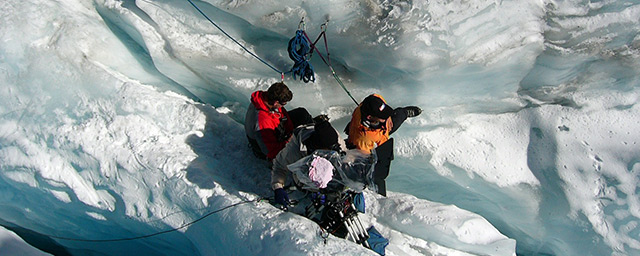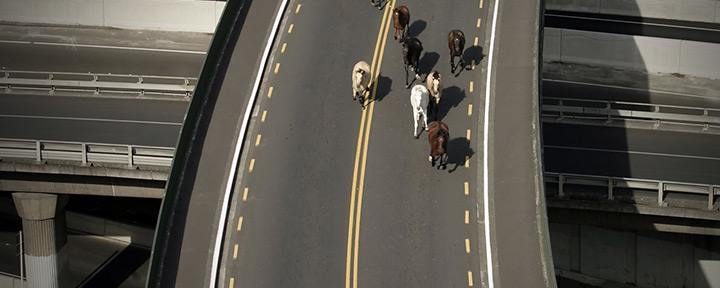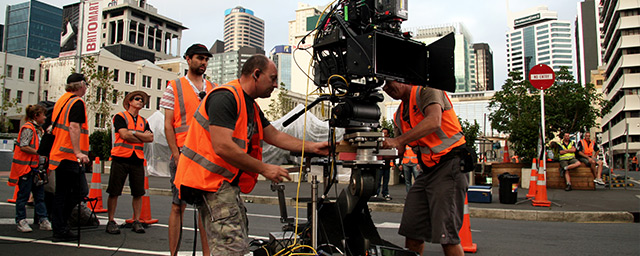Facts

Climate and seasons
The seasons in New Zealand are the reverse of the Northern Hemisphere. Summer is from December until February; Autumn from March until May; Winter from June until August; and Spring from September until November. This means that crops and fruits that are out of season in the Northern Hemisphere will often be obtainable in New Zealand. For example the best time for shooting snow sports is July-September and for shooting summer crops or at the beach, January – March.
The weather throughout New Zealand tends to be oceanic and temperate with warm summers and mild winters. There is moderate rainfall in most areas all year round. Winter snow is usually restricted to the mountainous areas of the South Island and the volcanic peaks in the North Island.
For today’s weather and forecasts see – MetService
Currency
The local currency is New Zealand dollars. See the following website for up to date rates.

Time differences
New Zealand Standard Time is ahead of the following cities by the given number of hours (from the first Sunday in October until the third Sunday in March add 1 hour for NZ summer time or “daylight saving”)
| Sydney, Melbourne | 2 hours |
| Seoul, Tokyo | 3 hours |
| Beijing, Taipei, Manila, Hong Kong | 4 hours |
| Singapore | 4.5 hours |
| Bangkok Jakarta | 5 hours |
| Mumbai | 6.5 hours |
| Berlin, Brussels, Paris, Rome | 11 hours |
| London | 12 hours |
| New York | 17 hours |
| Chicago | 18 hours |
| Los Angeles, Vancouver | 20 hours |
Language
English and Maori are the officially recognized languages of New Zealand. Big Pictures can provide interpreters for most languages.

Holidays
Public Holidays in 2022 (observed)
| Monday 3 January | New Years Day |
| Tuesday 4 January | Day After New Years Day |
| Tuesday 7 February | Waitangi Day |
| Friday 15 April | Good Friday |
| Monday 18 April | Easter Monday |
| Wednesday 25 April | ANZAC Day |
| Monday 6 June | Queen’s Birthday |
| Friday 24 June | Matariki |
| Monday 24 October | Labour Day |
| Tuesday 27 December | Christmas Day |
| Wednesday 26 December | Boxing Day |
Public Holidays in 2023 (observed)
| Tuesday 2 January | New Years Day |
| Wednesday 3 January | Day After New Years Day |
| Wednesday 6 February | Waitangi Day |
| Friday 7 April | Good Friday |
| Monday 10 April | Easter Monday |
| Thursday 25 April | Anzac Day |
| Monday 5 June | Queen’s Birthday |
| Friday 14 July | Matariki |
| Monday 23 October | Labour Day |
| Wednesday 25 December | Christmas Day |
| Thursday 26 December | Boxing Day |
Power
The power supply is 230 volts single phase (400 volts 3 phase).

Driving
In New Zealand cars drive on the left side of the road, as in the UK and Japan. For shooting purposes it is possible to close most roads for limited periods to enable cars to drive on the reverse side of the road.
Visitors from Australia, Canada, the United States, the United Kingdom, Germany, Switzerland, the Netherlands and South Africa may drive in New Zealand if they have a current driver’s license in their own country. Visitors from other countries may also drive in NZ if they hold a current International Drivers Permit (I.D.P.). The minimum legal driving age is 15 years but most rental companies require that drivers are over 21 years of age. Normally Big Pictures will provide local drivers for all production vehicles.

Casting
The pool of acting talent in New Zealand includes experienced professional drama actors, models and extras. The ethnicity of the cast available reflects the demographics of the country – most are of European, Maori or Polynesian origin, but with Asian, Black and Hispanic talent also available.
Minimum industry rates and working conditions have been negotiated with Actors’ Equity. By international standards rates are competitive and terms flexible.
Big Pictures works with a number of experienced casting agents in New Zealand and Australia who can provide estimates for talent fees at the budgeting stage.

Crew
New Zealand crews are experienced, competent and flexible. Most film and TV industry personnel in New Zealand are based in Auckland and Wellington in the North Island, but there are also some experienced local crew in the South Island, based mainly in Queenstown and Christchurch.
Crew in New Zealand are not unionized but The Blue Book is the standard reference document for best practices for the engagement of screen production crew in New Zealand. See – screenguild.co.nz
The standard shoot day in New Zealand is 10 hrs including 45mins lunch, with overtime payable after 10 hrs. The working week is usually six days, with overtime payable on the seventh day. There are no penal rates for shooting on weekends but penal rates are payable on some public holidays.
These conditions are negotiable for longer shoots (e.g. some film and television productions have agreed a working week of five x 12 hour days).For more specific information about crew rates, working conditions and so on please contact Big Pictures

Equipment
There is an extensive range of the latest HD camera equipment available in New Zealand, including Alexa and Red large format cameras. A wide range of spherical and anamorphic lenses are able to be rented locally.
Specialist equipment available includes heavy lift drones, a Russian Arm Mini, high speed cameras, super techno cranes, tracking vehicles, a range of gyro stabilized heads, steadicam, helicopters and mounts, motion control equipment, special effects equipment, underwater film equipment and so on.
Big Pictures can advise on the best equipment options and the best operators for your project.

Post Production
A number of post production companies provide a full range of post production services including off line and on line video editing, computer animation and VFX services of an international standard.
Please contact us to arrange to view show reels or for cost estimates.
Tax
Goods & Services Tax (GST) is a consumer tax of 15% applicable to all goods and services provided within New Zealand. GST incurred in the manufacture of goods for export (including films) may be refunded to local producers, subject to fulfilling certain criteria. Please contact Big Pictures for advice.
New Zealand film personnel are required to pay income tax under various regimes depending on the exact employment relationship with the production company. Employers are not required to pay additional payroll taxes or superannuation levies.
Customs and freight
Because the New Zealand economy is heavily dependent upon the export of agricultural products, there are strict bio-security rules governing the importation of plants and animals. Importing equipment (including camera equipment), props or vehicles into New Zealand may also attract significant import duties. Accordingly it is essential to arrange in advance for either a Temporary Import Entry (T.I.E.) or Carnet for any major items being brought into the country on a temporary basis to avoid unnecessary expense or delays in clearing customs.
Big Pictures freight and customs brokers will assist with all customs questions as well as advising on the most efficient freight options.

Visas
Overseas crew and cast working in New Zealand are legally required to have been issued a Temporary Work Visa by the New Zealand Immigration Service (this is not required for location scouting, for clients, agency or for holders of Australian passports). Big Pictures can assist in expediting this process with the NZIS, local Technicians Guild and local representatives of Actors Equity and it is advised that overseas producers contact us first for information and assistance.
Insurance
We recommend that visitors to New Zealand obtain certain types of minimum insurance cover while working in New Zealand. These include personal accident and medical insurance, content insurance, and insurance for your own equipment and personal property.
Big Pictures uses the services of New Zealand’s leading insurance brokers specializing in the film and entertainment industries and can arrange these and more comprehensive film insurance packages if required.
